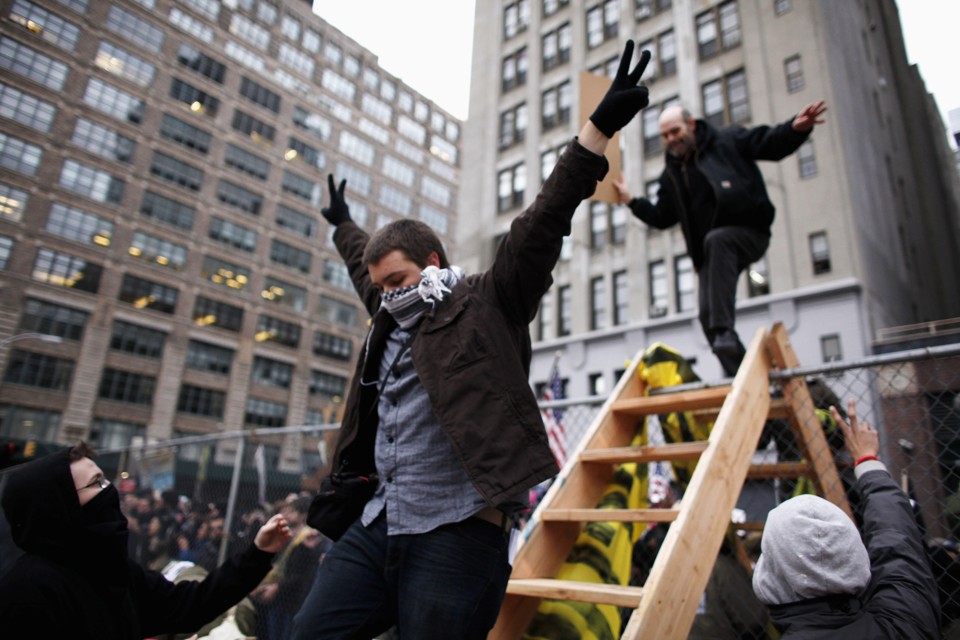For Harper’s, Rebecca Solnit writes about the habits of cynical people. She specifically writes about political motivation and Occupy Wall Street, of which their “fruits are too many to count.” Read Solnit in partial below, or in full via Harper’s here.
Different factions have different versions of naïve cynicism. There is, for example, the way the mainstream discounts political action that proceeds outside the usual corridors of power. When Occupy Wall Street began five years ago, the movement was mocked, dismissed, and willfully misunderstood before it was hastily pronounced dead. Its obituary has been written dozens of times over the years by people who’d prefer that the rabble who blur the lines between the homeless and the merely furious not have a political role to play.
But the fruits of OWS are too many to count. People who were involved with local encampments tell me that their thriving offshoots are still making a difference. California alone was said to have more than 100 Occupy groups; what each of them did is impossible to measure. There were results as direct as homeless advocacy, as indirect as a shift in the national debate about housing, medical and student debt, economic injustice, and inequality. There has also been effective concrete action — from debt strikes to state legislation — on these issues. Occupy helped to bring politicians such as Bernie Sanders, Bill de Blasio, and Elizabeth Warren into the mainstream.
The inability to assess what OWS accomplished comes in part from the assumption that historical events either produce straightforward, quantifiable, immediate results, or they fail to matter. It’s as though we’re talking about bowling: either that ball knocked over those pins in that lane or it didn’t. But historical forces are not bowling balls. If bowling had to be the metaphor, it would be some kind of metaphysical game shrouded in mists and unfolding over decades. The ball might knock over a pin and then another one in fifteen years and possibly have a strike in some other lane that most of us had forgotten even existed. That’s sort of what the Easter Rising did, and what Occupy and Black Lives Matter are doing now.
*Image of Occupy Wall Street via the Atlantic
